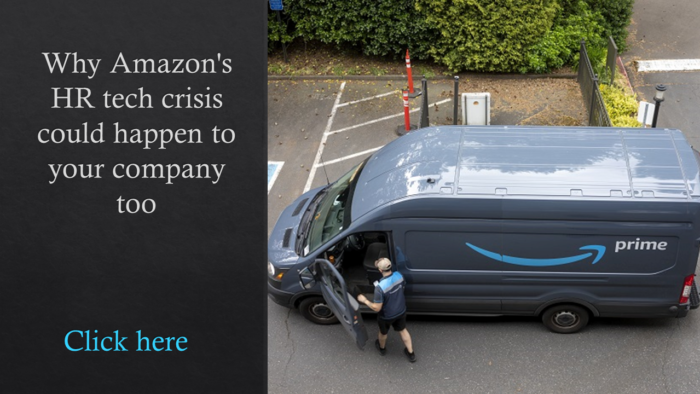As the Great Resignation grinds on, HR leaders are turning to technology and new ideas to retain valuable talent and develop burgeoning careers. HRE spoke with Josh Bersin, industry analyst and HRE columnist, ahead of his opening keynote address at the HR Tech Virtual conference at 11 a.m. March 1. Entitled “Change, Challenges and Opportunities: What’s Ahead for HR and the Technology Market,” the presentation will examine the importance of internal mobility, effective approaches to skills and capability development, EX imperatives for hybrid and deskless workforces, and new models of leadership. In this Q&A, Bersin describes the technology to look out for and what employees need to stay connected to their employers.
HRE: What are the top technology opportunities for 2022?
Bersin: There are three things to look out for. Number one is skills-based systems, which I call talent intelligence systems. These are systems that identify the skills that somebody has, the skills required for a job and they use that information for recruiting, development, internal mobility, career growth, and potentially even for pay. This is the massive technology investment that’s been going on for the last five or six years. I’ll be talking about it in my HR Virtual conference keynote. Register here.
The second is what I call employee experience platforms. All of the tools that companies have bought over the years in HR tech for time and expense management, payroll, learning management or recruiting: They are now being reconceived as systems of productivity and experience and systems that employees can use in the flow of work. And that’s a big change. People now are very busy. They’re working at home, on the road, on their computer a lot, and they don’t have time to poke around in the HR system and find the right screen to do whatever it is that HR wants them to do.
All of those applications are being rebuilt and delivered in a flow-of-work fashion. Microsoft and Google are in this market and the big vendors are all focused on this as well. Oracle, Workday, SAP SuccessFactors, ServiceNow … it’s a huge part of the market and every company is trying to figure it out.
Related: Insights into EX, culture and innovation top HR Tech Virtual agenda
The third tech opportunity is longer-term workforce planning. In an economy where there are 17 million open jobs, one-third of the workforce is quitting each year, and it’s hard to hire, HR needs to sit down and plan where you’re going to grow. [You must plan for] what roles you’re going to need and how are you going to either develop people internally or source them from some other location. Maybe you have to buy a company to grow the workforce. This all means you need a strategic planning team. Workforce planning has been a niche market in HR, but now the new systems that are coming out for skills and talent intelligence and recruiting can be used for workforce planning. I think another big new part of the HR tech market is moving from general analytics to really intelligent workforce planning tools.
HRE: How are HR leaders and talent acquisition professionals and recruiters faring these days? They really have their work cut out for them, don’t they?
Bersin: Well, yeah. In fact, recruiters are one of the most in-demand jobs in the economy right now. Recruiters are working very, very hard. They have a very large slate of candidates or job postings and job recs that they’re managing. HR people really do understand the burnout that is taking place and they’re having a lot of impact by teaching business leaders how to manage their teams in a more forgiving and inclusive way. This has been a big learning experience for every company over the last two years and even now we’re seeing people head back into the office [and it] is not working. At this point in the pandemic, people are feeling pretty empowered and companies have to take good care of them.

It’s particularly bad in frontline workers. If you look at people working in a retail store, a manufacturing plant or driving a truck or in a warehouse, their level of connection to the corporate culture is almost half as high as the people in a corporate job. Companies have to work especially hard with them because they don’t have a computer and they may be communicating with their manager over the phone. They feel about half as connected to their employer or their company’s purpose as the people in the offices. There’s lots of work to do here, but this is a pretty big agenda and most companies are really working on it.
HRE: Is long-term planning a little unrealistic now, Josh? HR leaders are busy putting out fires and keeping staff content. Is long-term planning a luxury?
Bersin: Yes, but it’s a necessary luxury. Most of the big companies are telling me we’re doing all that. [They say] we’ve got wellbeing programs, recruiters and candidate experience programs, and we’re working on our employee experience and we’re working on our purpose and our career paths. But [they say that] even if we do all of that, we’re not sure what’s going to happen. I looked at the healthcare statistics this morning and around 60% of the patient care professionals in nursing and related jobs want to leave the profession. CHROs are saying we need a pipeline of people into these jobs.
Related: Tech’s vital role in TA as recruiters join the Great Resignation
We’re not going to be able to recruit our way out of this, so we’ve got to put together career pathways and adopt intelligent programs to educate people into these new roles. It’s not planning for the sake of planning; it’s planning to meet current needs.
 HRE: What drives your passion for this topic? Why is this meaningful to you and what connects you to this issue?
HRE: What drives your passion for this topic? Why is this meaningful to you and what connects you to this issue?
Bersin: Well, this is a great inspiration for my career and my life. I fell into HR and HR tech after 20 years of doing other things in business. I now realize that these are some of the most important issues in a company’s success and in the lives of employees. I look at HR and HR technology as a very inspiring profession and a very important one. The last two years show that it’s been essential to companies performing well and I’m honored and thrilled to be part of it. It’s been meaningful for me for the last 25 years now. It’s the pinnacle of my career. <Laughs>
Register for HR Tech Virtual here.

